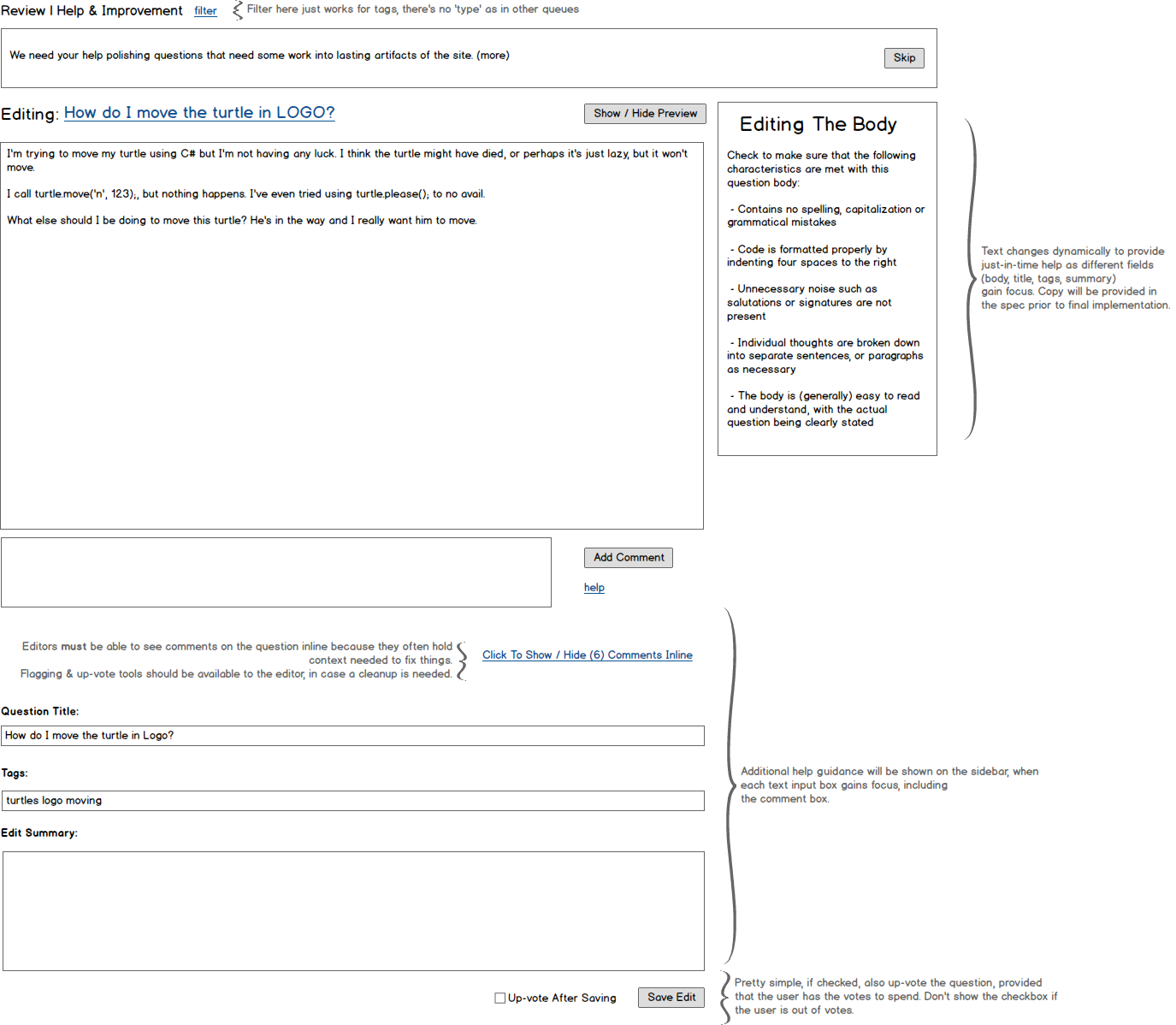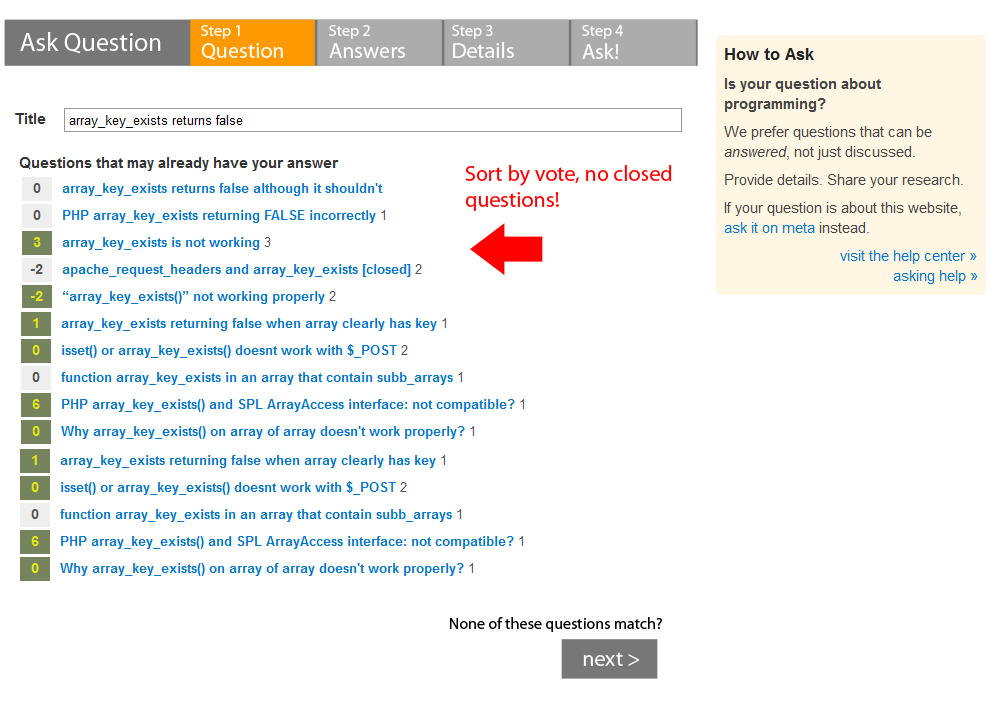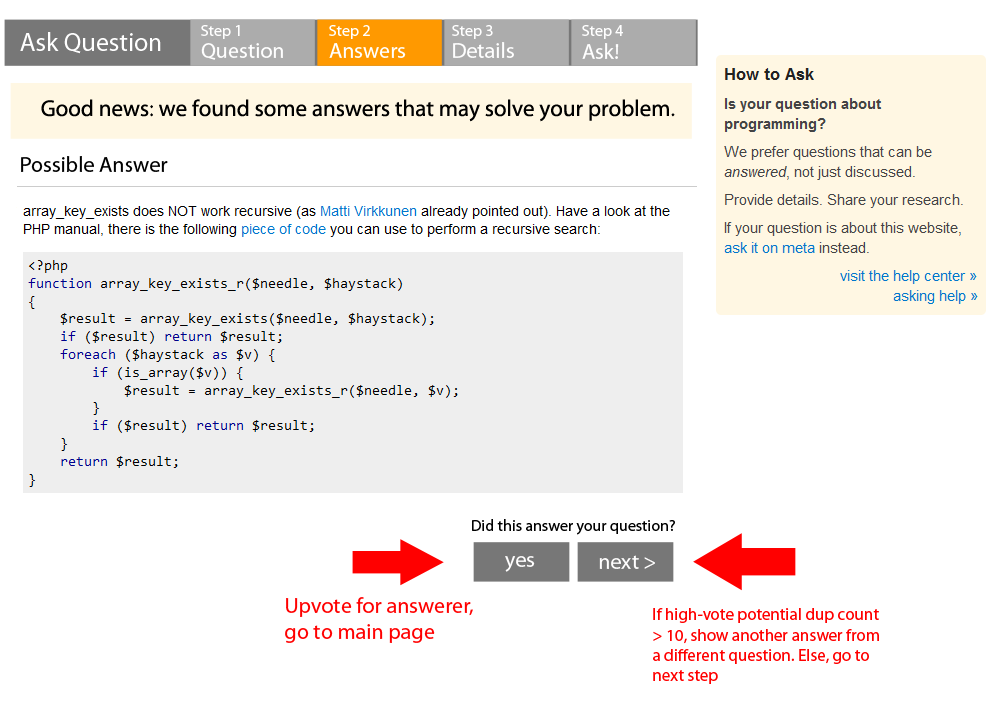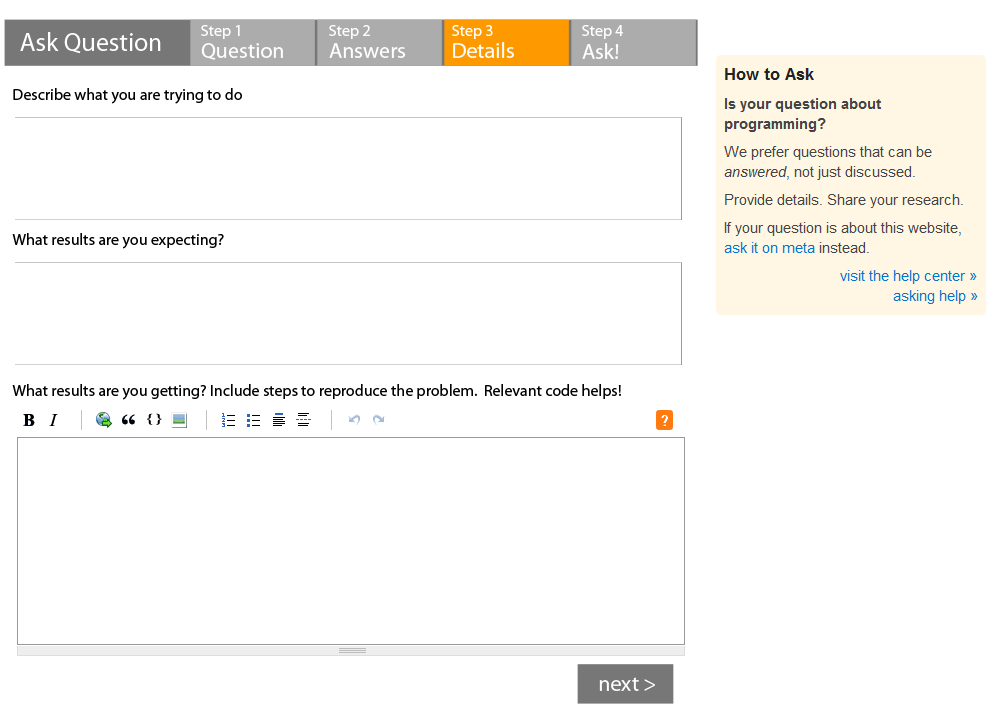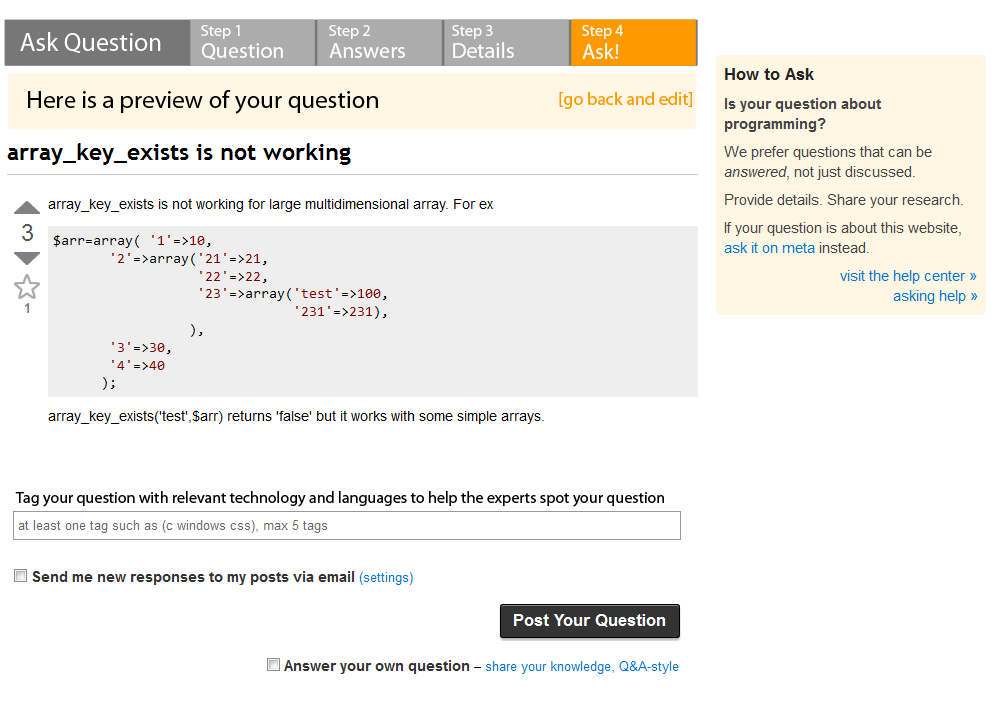I had a thought when I was reading over this post and its interesting answers: Are high-reputation users answering fewer questions? specifically this answer.
Why do we allow duplicates and low quality questions to be posted?
Now, obviously the first knee jerk response to that question is because, Carrie (you stupid head), there's no real pragmatic way to tell what's a dupe (duh). This is true, but, there are ways to thwart new comers from posting who haven't (re)searched their problem(s). I personally believe that new comers have way too little responsibility when it comes to asking questions. After all, we (the community and stack overflow as a whole) are providing them something for nothing.
Shouldn't asking questions be a (sort of) privilege now?
In the beginning, Joel Spolsky and Jeff Atwood created a place for anyone with any skill level to ask their programming questions and be heard. These same people could, in turn, answer questions. As many of you know, this idea not only worked, it became an amazingly successful place and almost some kind of FAQ for common and uncommon problems that the community (and their inner communities) faces.
Stack Overflow is established now. Isn't there room for improvement when it comes to the privileges we afford new (and possibly low-rep) users? AFAIK, currently new users can come in and ask questions with the minimum requirements being
- a title with at least 15 characters
- a body with at least 30 characters
- at least one tag
- (possibly captcha but I don't really know the rules regarding this)
Now, I am not suggesting that we disallow new users from asking questions but I do have a few ideas that aim to slow down the asking process and enable users to solve their own questions.
Force a new user to view (click) at least {n} similar questions before submitting
Right now, when you start to ask a question, after typing a title it will provide the list of questions that are related. Are there any checks to see if the user views any of these questions before proceeding to submitting their question?
Keep in mind that new comers don't know how Stack Overflow works. wtf is a dupe and why do i care when i have this super important problem?!? They don't care about that and aren't interested in contributing and taking care of Stack Overflow (at this point) and that's okay! They're allowed that, but I think we should really press them that Stack Overflow possibly has an answer to their question.
Maybe we put more emphasis on the "Questions that may already have your answer" box. One way to do this is to minimize the question when they click the Post Your Question button and start one boxing related questions similar to a review queue where they have to view the question/answers for {n} amount of time before review the next one and they have to review {n} amount of questions before posting the question.
Require a survey concerning what a new user has tried, researched, included, etc.
Probably one of the biggest annoyances for regulars are questions that show absolutely no research effort. When I was new(er), I would usually post some snappy comment because I was disgusted that OP didn't show the same respect for this sanctuary as me. I wanted OP to know that this was a silly way to treat an amazing tool and they should be internet-reprimanded! Fortunately, I realized this approach accomplished little to nothing and grew out of that but the problem still remains rampant with little resistance.
Providing a sort of survey during the question asking process can accomplish a lot if polished correctly. Depending on links and word combinations included in the title, body and tags, we can ask pointed questions.
A few quick examples:
Have you looked at the documentation of included tools and languages?
Yes:
Include the documentation you've read that's related to your problem and explain what's lacking or how it is not helping
No:
Consider reading documentation, if any. This will help you narrow down your problem and if it still exists afterward, it will also help you narrow down your problem.
Can you provide code that replicates the problem? (this question will have some [tag] dependency but can probably be generalized)
- Yes(generalized):
Then include it! Try to narrow down your problem to the smallest amount so that others can narrow down the problem without digging through a lot of code. This process will also help you debug your code.
Yes (tag specific, for example html/js/css related)
Then include it! A visual example usually helps others identify your problem as well. Consider using a tool like {playground IDE link} to help show your problem to others.
No:
Why not? If code is not related make sure your question is on topic for stack overflow [link]. (a lot more can be implied by this. This could break down into another series of questions)
- Yes(generalized):
A lot of these questions would benefit from a flow-chart kind of breakdown. A few things this does:
- Push the asker to drill down into the problem and provide necessary links, code, explanations, inline examples, reproduced online IDE examples
- Possibly provides OP with a generalized debugging process that helps them find the answer without ever posting
- Sets a standard of what we expect in order for you to post a question
- Saves the new user from being torn to pieces with downvotes and facetious comments
None of the survey questions would really stop a user from asking, but I think they should require an answer. Ideally, it should slow down the asker from submitting and push them to build a worthy question.
Add a delay between when a new user submits a question and when it's public
I see a lot of questions that go something like this:
i am having a problem with x and cannot figure it out
edited 6 minutes later
oh! i found the solution and it was so stupid >:( silly me! {link to stack overflow dupe that was most likely in the related questions list}
My thoughts on this is that OP really just needed to type (think) out his/her problem and really analyze the problem in a way that they could explain it to others (and in a way themselves). We could possibly even have a queue similar to how the low quality review queue works where the questions could be semi-public for those who care enough to review and specifically search for duplicates. If duplicates are found, the OP can be notified:
here's a possible solution {dupe link}
and not
possible duplicate {dupe link}
because, again, new comers don't know/care what duplicates are. They want solutions. Wording is everything.
Then, the question be recommended as a possible duplicate (or possibly close vote depending on the reputation of the reviewer). There could even be a way for a user to "mark" a suggested possible dupe as a solution to streamline the process.
Here's a list of immediately obvious pros and cons: (I'm sure there's more of both)
Pros:
- Allow the user to think through their problem without polluting SO
- Free up users from reading/solving trivial problems that already have an answer
- Stop the idea from forming in new users' minds that SO is a place where they can do little to nothing and keep receiving solutions (this is fueled, in part, by answerers and is another discussion entirely, but I still feel its semi-relevant to point out)
- Clean up the new questions feed
- Puts more value into thorough research since the asker is unable to immediately yield results from questions
Cons:
- What if a user does find the solution in the time that the question is delayed but it is useful and should be shared? How is this handled?
- Robo reviewers gon robo review
- Does the review queue stop it from being public or is there a strict time limit? What are weights of these things? ie what happens if a review is never made and its past the time limit?
- Do we really need another scary review queue on the already heavily burdened community?
- Potentially stops a high percentage of new comers from asking because they're impatient (not sure this is necessarily a con)
- In essence, we've just turned into the asker's specially altered, human search engine
Overall TL;DR: Let's do something
I am open to criticism (implying I have a choice, hah!) and other solutions and realize that all of the ones I've proposed have cons. I really believe that we can do more to put a dent in the flood of low quality questions and duplicate questions that flood Stack Overflow every day.
Our highest contributing members are becoming more and more inactive and we have to place some blame on this topic. In my humble opinion, it is time to at least try to address it.
